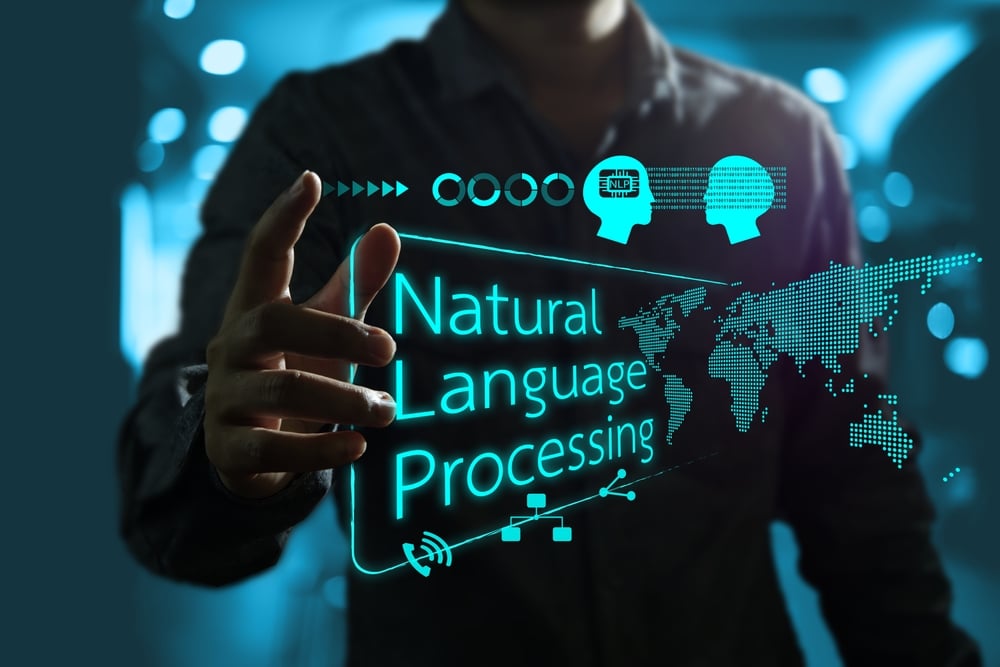While the data science vs data analytics vs machine learning vs artificial intelligence debate is creating revolutions across industries, there’s still a considerable amount of doubt that hovers over the two terms. The two are interconnected but have different scopes, follow different approaches, and produce different results depending on your industry.
Organizations are always on the lookout for expert professionals in data science and data analytics, so needless to say the best time to explore and leverage the fields is right now. And here’s where you start! In this article, we’ll talk about the sensational data science vs data analytics vs machine learning vs artificial intelligence debate and also explore the edges of how machine learning and artificial intelligence differ from the two.
Let’s begin!
Data Science vs Data Analytics vs Machine Learning vs Artificial Intelligence: What is the Difference?
It’s 2020, and as our worlds are storming towards machines being less artificial and more intelligent. It has thus become more imperative than ever to learn about the basics that are shaping business decisions, technology, and careers. If you’re someone who’s ever thought of exploring data science vs data analytics vs machine learning vs artificial intelligence or all of them(!) – you’re at the right place! Read along!
What is Data Science?
In today’s day and age, the biggest asset for businesses is data. The more data they have access to, the more insights they can generate. Through data, they can see patterns that no one knew existed. This further helps them to make more informed decisions and stay ahead of the curve. Data science is basically a multidisciplinary field that essentially focuses on extracting insights from large data sets – both raw and structured. The expert professionals known as data scientists bank on computer science, statistics, machine learning, and predictive analysis to establish solutions of questions that are not yet discovered.
The field does not fixate itself with finding specific answers rather strives to ask the right (and relevant) questions. But how do they ask the right questions? Through trends, exploring disconnected sources of data and finding ways to analyze information much more efficiently. Data science is always concerned with finding new patterns and insights that were not known. Data scientists collect data from varied sources, organise that information and extract results. But their work doesn’t end here. They also transform the results they get into solutions and communicate the findings to ultimately lead to effective decision making in businesses.
What Is Data Analytics?
By defining data analytics we’ll come a little closer to understanding data science vs data analytics. Data analytics comes under the purview of data science. It essentially processes and performs statistical analysis on the existing sets of data. So data analytics is not about finding questions but finding answers and gaining insights for problems that we know.
Unlike data science, here we already have a set of questions around which we are supposed to work. Data analytics, though related to data science, is much limited in its scope and is much more specific. It does not aim to look for connections between the data but ways to support the goal in mind. Precisely, data analytics analyzes raw data to make conclusions about that information. The techniques of analytics are used in organizations for making better and informed decisions and by scientists for verifying or disproving theories and scientific models.
What is the difference? – Data Science vs Data Analytics
- Data science is a broader term, much wider in its scope as compared to data analytics. While data science constitutes fields that mine large sets of data, data analytics is much more specific and basically a part of the bigger process.
- Data science aims to uncover insights and find patterns from large datasets. Unlike data science, data analytics is concerned with finding answers and gaining insights to existing questions.
- Data science focuses on asking the right and relevant questions while data analysis focusses on questions that require answers.
- Data science is concerned with predicting the future based on the past patterns while data analysis is about curating relevant and meaningful insights from the data.
- Data science precisely revolves around estimating the unknown whereas data analysis deals with exploring new perspectives of the known.
- Data scientists deal with problems whose solutions will have business value while data analysts deal with business problems.
Now that we have discussed data science vs data analytics, it’s time to explore their relationship with artificial intelligence and machine learning.
What is Artificial Intelligence?
Artificial intelligence is nothing but the simulation of human intelligence in machines. AI enables machines to think, learn, and find solutions (solve problems) just like human brains do. AI possesses the power to rationalize like us and take actions that are most likely to accomplish a goal. Through artificial intelligence, machines can execute the desired tasks by imitating human intelligence.
Data Science vs Artificial Intelligence
- Data science deals with pre-processing, analysing, visualizing, and predicting the data. Whereas, AI implements a predictive model used for forecasting future events.
- Data science banks on statistical techniques while AI leverages computer algorithms.
- The tools used in data science are much more in quantity than the ones used in AI. The reason for this is – there are multiple steps for analyzing data and extracting insights from it.
- In data science, the focus remains on building models that use statistical insights, whereas, for AI, the aim is to build models that can emulate human intelligence.
- Data science strives to find hidden patterns in the raw and unstructured data while AI is about assigning autonomy to data models.
Data Analytics vs Artificial Intelligence
- Data analytics deals with finding patterns based on past data to predict future events while AI involves data analysis, making assumptions, and aims to make predictions that are beyond human capabilities.
- Data analytics is about finding patterns in the given data while AI aims to automate the process by giving machines human intelligence.
Get To Know Other Data Science Students
Lou Zhang
Data Scientist at MachineMetrics
Jonathan Orr
Data Scientist at Carlisle & Company
Hastings Reeves
Business Intelligence Analyst at Velocity Global
What is Machine Learning?
Machine learning is a subset of artificial intelligence. It essentially gives machines the ability to learn and improve through experiences – without the need to program them explicitly. ML aims to develop programs that can access data and utilise it to learn for themselves.
Data Analytics vs Machine Learning
- Analytics relies on existing information to find patterns that ultimately shape decisions. Whereas machine learning leverages existing data that provides the base for the machine to learn for itself.
- Analytics reveals patterns through the process of classification and analysis while ML uses the algorithms to do the same as analytics but in addition, learns from the collected data.
- Data analytics ultimately aims to find patterns whereas ML aims to learn from data and make estimates and predictions.
Data Science vs Machine Learning
- To be precise, Machine Learning fits within the purview of data science.
- The main difference between data science and machine learning lies in the fact that data science is much broader in its scope and while focussing on algorithms and statistics (like machine learning) also deals with entire data processing.
- Data science is essentially used to extract insights from data while Machine learning is about techniques that data scientists use so that machines learn from data.
- Data Science actually banks on tools such as machine learning and data analytics.
Related Read: Data Science vs Statistics: Learn the Difference
Artificial Intelligence vs Machine Learning
- Artificial intelligence essentially makes machines simulate human intelligence while ML deals with learning from past data without being explicitly programmed.
- AI focuses on making systems that can solve complex problems while ML aims to make machines learn from available data and generate accurate outputs.
- Subsets of AI – machine learning and deep learning while a subset of machine learning – deep learning.
- AI works towards maximizing the chances of success while ML is concerned with understanding patterns and giving accurate results.
- AI involves the process of learning, reasoning, and self-correction while ML deals with learning and self-correction only when introduced to new data.
- Artificial Intelligence deals with structured, unstructured, and semi-structured data while Machine learning deals only with structured and semi-structured data.
Data Science vs Data Analytics vs Machine Learning vs Artificial Intelligence- Careers
| Aspects | Data Science | Data Analytics | Machine Learning | Artificial Intelligence |
| Job roles | Data Engineer, Data Scientist, Data Analyst, Data Architect,Database Administrator, Machine Learning Engineer, Statistician,Business Analyst, Data and Analytics Manager. | Sales Analyst, Operations Analyst, Customer Success Analyst, Market Research Analyst, Marketing Analyst, Business Analyst, Financial Analyst, and more. | Machine Learning Engineer, Data Architect, Data Scientist, Data Mining Specialist, Cloud Architect, and Cyber Security Analyst, and more. | Machine Learning Engineer, Data Scientist,Business Intelligence Developer,Big Data Architect, Research Scientist. |
| Skills | Programming Skills.Statistics.Machine Learning. Multivariable Calculus & Linear AlgebraData Visualization & CommunicationSoftware Engineering.Data Intuition. | Mathematical skills, Programming languages- SQL, Oracle and Python.Ability to analyse, model and interpret data. Problem-solving skills. | StatisticsProbabilityData ModelingPrograming SkillsApplying ML Libraries & Algorithms, Software Design, Python | Mathematical and Algorithms skills, Probability and Statistics knowledge, Expertise In Programming – Python, C++, R, JavaWell-versed with Unix Tools, Awareness about Advanced Signal Processing Techniques. |
| Salary | 1050k/year Average base pay | 5,14,106/yearAverage base pay | 1123k/year. Average base pay | Rs 14.3 lakhs per annum |
That marks the end to the Data Science vs Data Analytics vs Machine Learning vs Artificial Intelligence debate and their relationship with AI and Machine Learning. Now that you know about it, it’s time to take the right actions – through leveraging the existing and upcoming opportunities. But how do you gain expertise in the field? Well, Let me help you with that!
Related Read: AI vs. Machine Learning vs. Deep Learning: What’s the Difference?
Since you’re here…Are you interested in this career track? Investigate with our free guide to what a data professional actually does. When you’re ready to build a CV that will make hiring managers melt, join our Data Science Bootcamp which will help you land a job or your tuition back!





